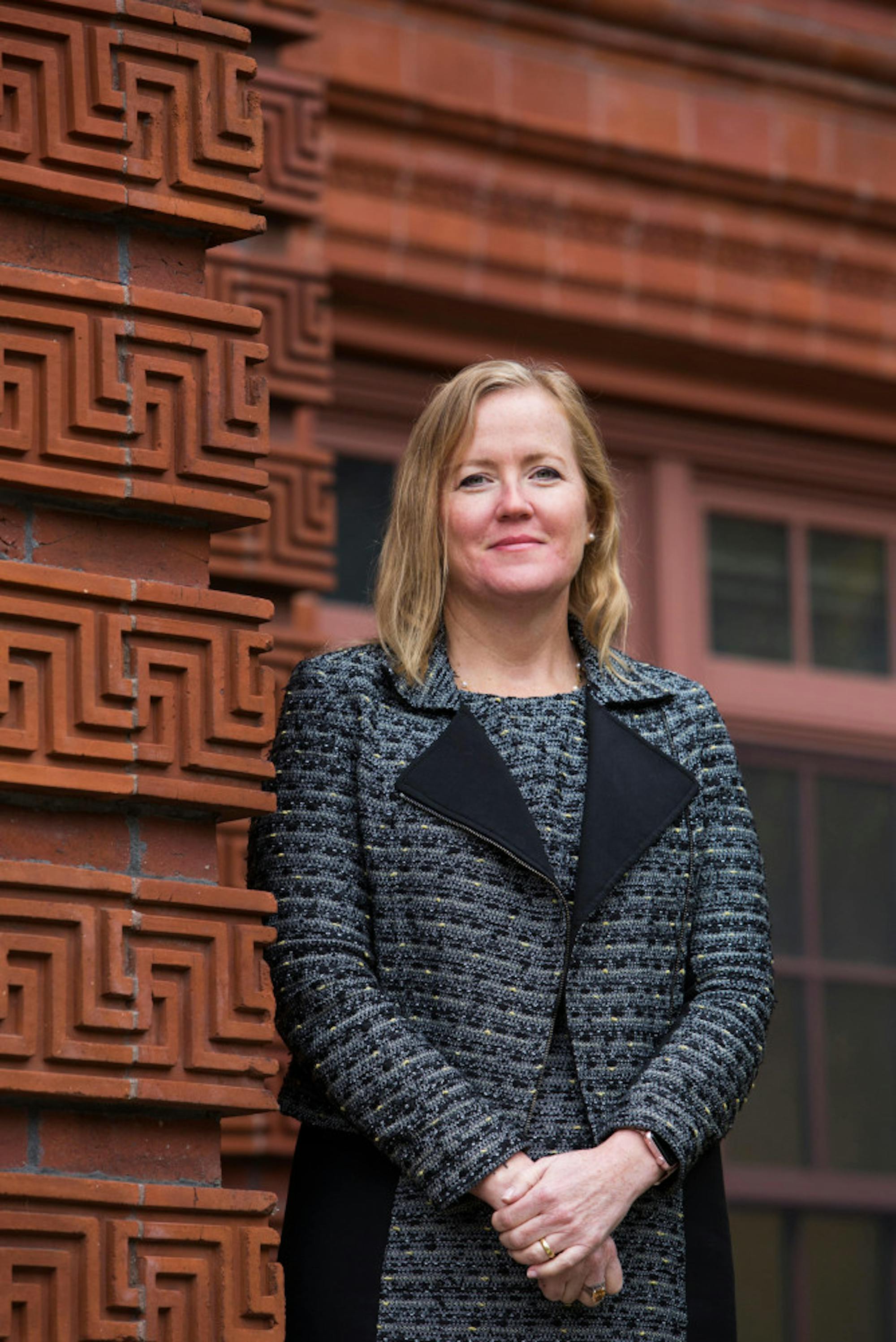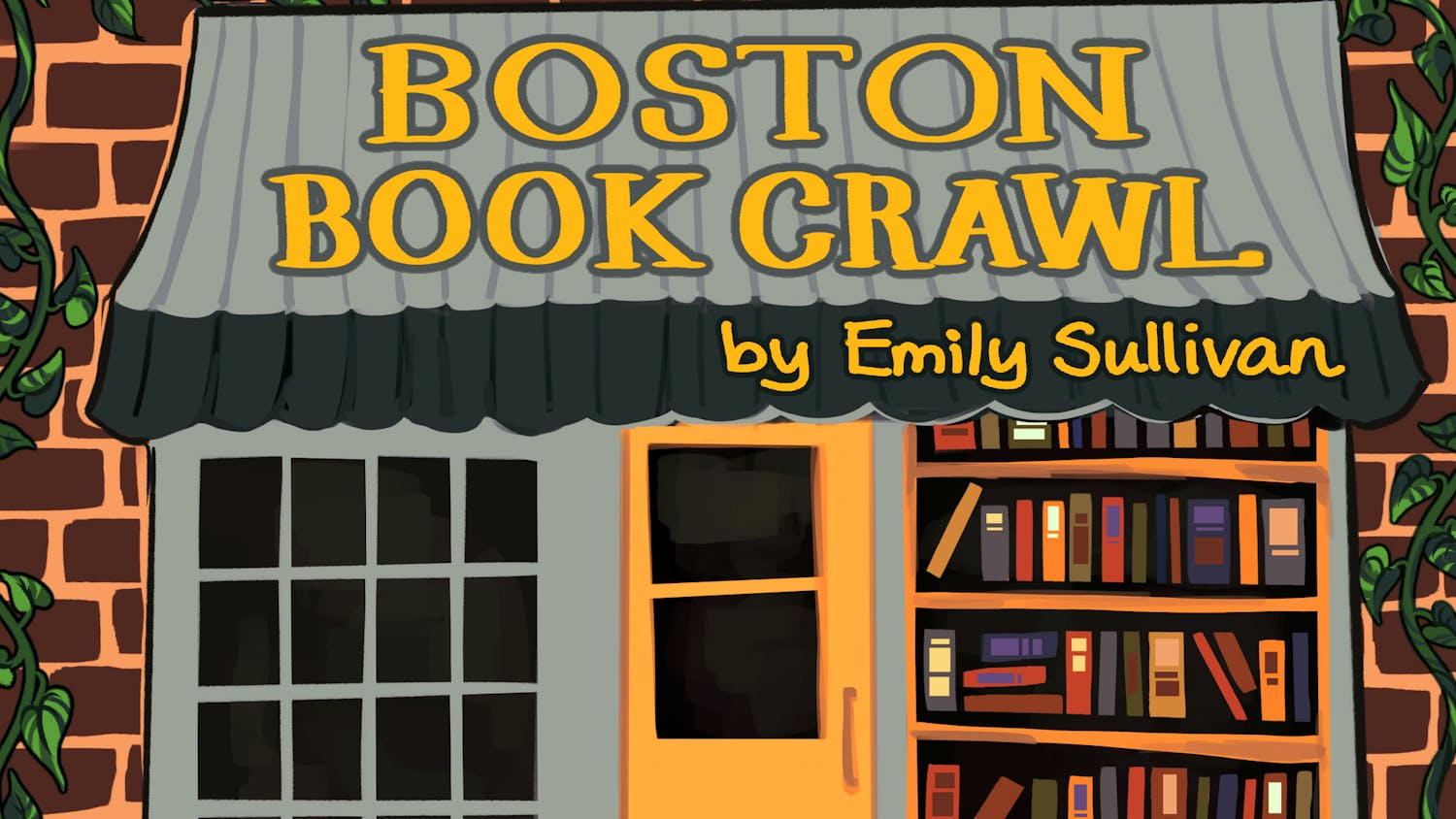The Fletcher School of Law and Diplomacy has added to its academic and research prowess in the field of international security with the creation of the Center for Strategic Studies (CSS)last May. The CSS is led by its mastermind, Professor of International Politics Monica Duffy Toft.
According to Toft, her vision for the center was informed by her time spent as a PhD research fellow and later as assistant director at Harvard University’s John M. Olin Institute for Strategic Studies, which has since closed.
“In the '80s and the '90s, we were starting to focus on U.S. foreign policy, but we weren’t getting an academic perspective in research in the way that we wanted [it] to be. So we [at the Olin Institute] wanted to train and mentor students who were interested in foreign policy, and recruit scholars who were thinking about policy,” Toft said.
Before the opportunity arose for Toft to head a research center at Tufts, she was a pioneering faculty member at the Blavatnik School of Government at the University of Oxford, a program that was founded in 2010.
“When I was at Oxford, I was helping to build a new school, so I wasn’t in a position to build my own intellectual academic center,” Toft said.
However, Toft explained that her passions lie within security and strategic studies. Serving as the director of CSS at The Fletcher School gives her the opportunity to create a research institution similar to the Olin Institute.
“It’s my vision, it’s something I’ve been wanting to do for a long time,” she said.
According to Meg Guliford, PhD research fellow at the CSS, the term “strategic studies” refers to a specialized field within international relations that is devoted to the intersection of international politics, diplomacy and military power.
“Strategic studies are those major issues that affect regional balance of power or global balance of power. So when you are talking about civil wars, civil wars are destabilizing in a way where you might not feel it globally but regionally it becomes very, very important,” Guliford, a fourth-year PhD student, said.
Toft concurred and explained that some of the center’s research focuses on the long-term implications of military intervention on behalf of the United States and other countries.
“One thing we’re focusing on is what’s going on with intervention,” Toft said. “It may not be a bad thing but there are trade-offs and the questions are, what are those trade-offs and what do they mean for United States foreign policy.”
Guliford’s research reflects this concern with how military interventions in conflicts affect violence against noncombatants.
“My research looks at under what condition the military interventions affect the strategy that states and rebel groups adopt with respect to civilian victimization. So, how do different types of military interventions affect not only the nature, but ultimately the type of civilian victimization that states and rebel groups have to take,” Guliford said.
Research centers like the CSS are able to elevate the prominence and quality of scholarly research on specific topics, by attracting first-rate scholars and forming academic communities, as Guliford explained.
“Fletcher, at times, is so interdisciplinary that your research may get lost in the milieu because it's so specific to a group of scholars, whereas when you’re part of a center, people know your research, they understand the literature of which your research is based,” Guliford said, “To be able to constantly get their feedback and also critique their research as well just elevates your game.”
Toft and her colleagues are not the only people interested in researching strategic studies. According to a press release from The Fletcher School, the CSS is funded through a $3 million grant over six years from the Charles Koch Foundation. The foundation has made similar grants to other academic institutions, including one for a program in strategy, security and statecraft jointly conducted by the Harvard and Massachusetts Institute of Technology, as stated in a Nov. 13, 2017 Harvard Kennedy School press release.
In Toft’s view, this grant seems to indicate a long-term partnership forming between the center and the Charles Koch Foundation.
“[The Charles Koch Foundation] is really concerned about human freedom being abrogated,” Toft said. “I do think that they are in it for the long term because their goals align with ours in the research we are conducting.”
While research is clearly an important part of the center's overall vision, the program also emphasizes connecting foreign policy practitioners with scholars, according to Anna Ronell, program manager of the CSS.
“The center is really about U.S. foreign policy. It’s designed as a hub for students, scholars and practitioners. We have a series that’s called 'Engaging Practitioners' and we’ve invited people who are diplomats, people from think tanks, people who are actual prime ministers,” Ronell said. “We had former Israeli Prime Minister Ehud Barak come here to talk about security.”
Ronell attributed the center's current success to the power and relevance of Toft’s vision for it.
“We’ve been trying to bring together both the academic world and the non-academic world. That’s one of the goals, to promote discussion and to promote a variety of points of view, and question things. That’s what Professor Toft envisioned,” Ronell said.
Ronell’s main focus as program manager is to oversee the administrative operations of the center and encourage its researchers to write as much as possible. The center has a blogwith various contributors and several research fellows currently working on articles for academic journals.
“I try to encourage writing. We started a blog, and that is a really good platform. If you look at our blog, some of the entries have around 1,000 hits, which indicates that people read it. That’s important,” Ronell said. “I think that for an academic institution, writing is the most important intellectual product.”
In the future, Ronell aims for the CSS to produce many different forms of writing, potentially even creating its own publication. However, seeing as the center has only existed for less than one year, its current production must be matched to its resources.
"We are an academic start-up. In reality, we’ve only existed — this is our second semester, this is our first year. We need to do a lot of things that are going to be productively fast,” Ronell said. “What happens is ideally, once we graduate from being an academic start-up, we would like a spread of different forms of writing but that needs to grow organically.”
Toft shared that she is pleased with the progress that the center has made so far and is looking forward to watching it growing to fulfill her vision of a world-class research center on strategic studies.
“We spent the first year sort of building up from the shadows and now we’re working on establishing ourselves as a center conducting top-notch research,” Toft said. “I’m really excited about it.”
Fletcher's Center for Strategic Studies concludes successful first year

Monica Toft, professor of International Politics at the Fletcher School of Law and Diplomacy, poses for a portrait on Nov. 7, 2017.





